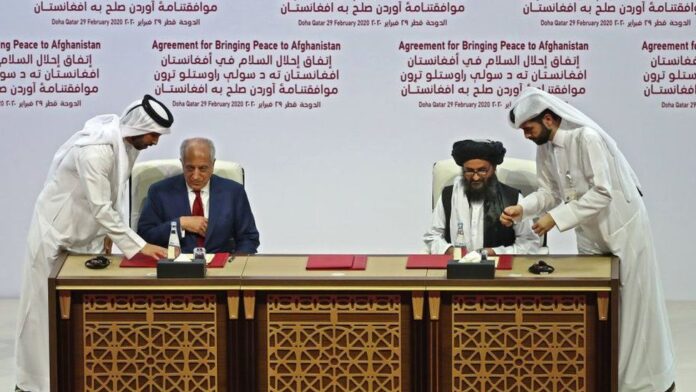The current article points out the challenges of the current and potential threats facing the country, the nation, and the Taliban themselves for their inflexible internal and external policies that do not comply with the ground realities and breaching commitments with Afghans and the world community. The Afghans can not afford to experience another system collapse, same as the previous government when the rulers escaped while the consequences suffered the country and the people.
Our airspace has constantly been used by others. We are helpless against this usage. Considering this weak point of the Taliban government, we can assume that it is easier to topple the current government than the previous regime, and the threats that the Taliban regime is faced with, seem more serious and scary than the threats that the previous government was faced with.
The geo-strategic changes in the region, the tense and complicated economic political, and security situation in Afghanistan, the unemployment, the catastrophe of intellectuals, bureaucrats, technocrats, scholars, and entrepreneurs leaving the country, the increasing gap between the people and the government and most importantly, the lacking signs in Taliban leadership to pursue moderate policies and seek commonalities with the world indicate that we are on the verge of facing another dangerous and terrifying disaster.
Focusing on the economic perspective, Afghanistan is getting closer to total economic collapse, after the Taliban seized the power last year. The banking system is seemingly on the brink of paralyzing conditions. The clock is ticking, urging the regime and the international community to find a pragmatic solution to get the banking system get back on track. There must be political negotiations, flexibility from both sides, and a permanent solution to the current disastrous situation in Afghanistan.
The Afghan economy depended on aid before the US-backed government was overthrown by the Taliban. The unilaterally sanctioned and globally isolated Taliban-led Afghanistan have made foreign banks reluctant to facilitate financial deals and transactions.
Because of the global sanctions and the lack of adequate financial policies the business community is on the run. Commercial banks are out of cash to meet customers’ needs. After waiting for hours in front of commercial banks, few of their customers can hardly get USD 200 per week to meet their living requirements.
In such critical circumstances, the business community will find it difficult or nearly impossible to conduct routine business activities such as paying suppliers, buying raw materials, and paying its employees.
Furthermore, the continuous use of Afghanistan’s airspace by unknown drones is considered an infringement on the airspace of a free and independent country. The question is, what are the strange drones patrolling for? How long will this continue, what targets will these drones hit and what term should we use for this kind of aggression? Is our country safe and a sovereign state today? Isn’t our airspace part of our sovereignty? These are the questions that we should think about.
Moreover, the misleading perception being presented by international media and baseless propaganda, spread by some local prejudice opportunists have adversely affected the already tense situations in Afghanistan. The media and the opportunist elements are unrealistically presenting the ruling Sunni Hanafi sect-dominated regime as a Pashtun majority monopolized government. While neither the ruling party claimed nor can they meet the traditional characteristics required for Pashtun tribal leadership.
It is a pity that in the 21st century, girls’ education is banned in Afghanistan and the society does not shake. We have unfortunately not reacted accordingly to protest against the closed doors of schools for more than a year. We must change our behavior. We should look at our objectives and then judge, count on complying with the promises by the rulers or otherwise, and subsequently decide to support or oppose them.
Regrettably, future generations, while looking at the pages of history may presume that religious values must not be part of politics. The future status and dignity of religious scholars and spiritual leaders will be affected by the mistakes they make today. Looking at the instrumental use of religion by religious groups, the use of the religion card against their political opponents will harm our religious values.
The existence of incompetent elements and hardliners in the regime’s leadership, their inability in maintaining the required balance in international ties, their harsh domestic policies, and the stagnant situation have caused the Afghan people to live in calamity. Considering the critical situation in the country, the authorities are suggested to conduct thorough evaluations of their policies before getting too late to do so.
However, it is perceived that the international community is fed up with the current unpredictable situation in Afghanistan. So if we do not initiate changes by ourselves in compliance with our national interests and global expectations, time and undesirable circumstances will undoubtedly force us to change and that would be a disaster.
Even though the Doha agreement had major legal and political defects and shortcomings, the US and Islamic Emirate as the main parties to the agreement must bind themselves to comply with the terms and commitment they made in the agreement. The verses of the Qur’an also urge Muslims to fulfill their promises and covenants.
In addition to the parties of the agreement, other stakeholders, neighbors, and the countries of the region have luckily not opposed the implementation of this agreement. So it relatively seems to be the only way out of the current terrifying situation.




